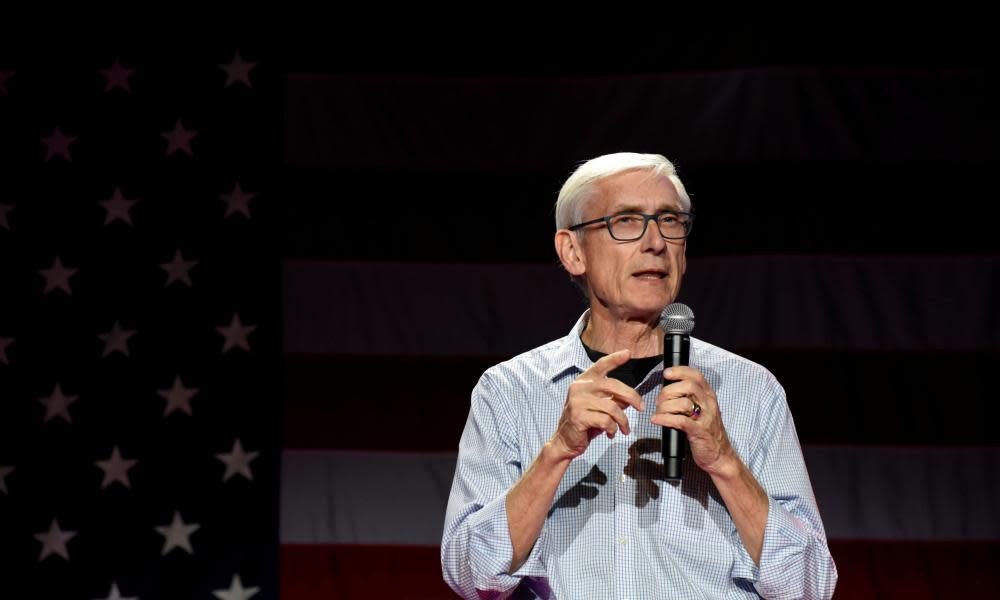Wisconsin primary: state supreme court orders voting to move ahead

The Wisconsin supreme court ordered the state to move ahead with in-person voting on Tuesday, hours after Governor Tony Evers called it off, capping weeks of chaos and criticism as the state scrambled to try and hold an election amid the Covid-19 pandemic.
Evers, a Democrat, had delayed in-person voting in the state until 9 June and ordered the legislature into a special session on Tuesday to consider a new date for in-person voting. But in a 4-2 ruling, the state supreme court accepted a request from the Wisconsin legislature to allow voting to proceed. The legislature argued Evers lacked the authority to move the election.
Evers had resisted calls to move the election for weeks, saying he did not have the authority to unilaterally call off the election. On Friday he had called on Republicans who control the state legislature to delay in-person voting and move to an all-mail election. Republicans swiftly rejected that request.
Wisconsin’s Tuesday election is being closely watched as a major test of whether a state can successfully hold an election in the coronavirus era. The state faced such a shortage of poll workers that jurisdictions throughout the state were planning to severely limit in-person voting.
Wisconsin residents are currently under an order to stay at home.
Evers had also called on the national guard to assist at the polls. In Milwaukee, the city planned to open just five locations for in person voting – it usually has 180. Election officials said the weeks leading up to election day were chaotic and some called on the state to postpone the election.
“As municipalities are consolidating polling locations, and absent legislative or court action, I cannot in good conscience stand by and do nothing,” Evers said in a statement. “The bottom line is that I have an obligation to keep people safe, and that’s why I signed this executive order today.”
An unprecedented 1.2 million Wisconsin voters had requested absentee ballots and Evers’ executive order would have allowed them to continue to request ballots until the date of the new election.
In addition to the Democratic primary, Wisconsin’s Tuesday election featured local races throughout the state. The most closely watched contest was a race for a seat on the state supreme court, where Democrats are hoping to oust Daniel Kelly, a conservative justice. Democrats were concerned that the low voter turnout could benefit Kelly, who recused himself from Tuesday’s decision.
The rules around the Tuesday election have been hotly fought over in federal court over the last few days. A federal judge last week ordered the state to extend its deadline for accepting absentee ballots from election night until 13 April. An appeal of that order is currently pending in the US supreme court.
Last month, Ohio public health officials cancelled the state’s 17 March primary at the last minute. The state has since moved to a mail-in focused election.


